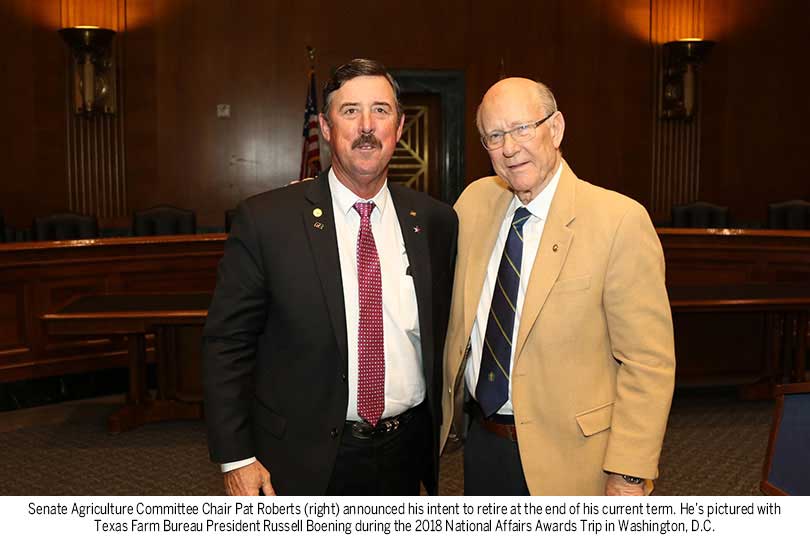By Jennifer Dorsett
Field Editor
Agriculture will lose a longtime leader next year when the only lawmaker to chair both the House and Senate Agriculture committees steps down.
Kansas Senator Pat Roberts announced he will not seek reelection in 2020, ending a decades-long career in Congress.
“I am announcing I will serve the remainder of this term as your senator,” Roberts said at an event in Manhattan, Kansas. “However, I will not be a candidate in 2020 for a fifth term.”
Roberts assured constituents he would remain focused on trade issues and oversee the implementation of the 2018 Farm Bill “to make sure it is working for our farmers and ranchers.”
Roberts was first elected to the U.S. House of Representatives in 1981 and served as House Agriculture Committee Chairman from 1995-1997. He was elected to the Senate in 1997, and he has served as Senate Agriculture Committee chair since 2015.
While in Congress, Roberts has been involved in crafting legislation important to agriculture, including most recently the 2018 Farm Bill and the 2016 biotechnology law regarding GMO labeling.
The biotechnology bill was “the most important vote for agriculture in the last 20 years,” according to Roberts, because it preempted a patchwork of state labeling laws that created challenges for food producers and manufacturers.
During his time in the House, Roberts was influential in getting the 1996 farm bill, known as the Freedom to Farm, passed.
The bill eliminated the link between income support payments and farm prices. Instead, it implemented a seven-year production flexibility contract providing farmers and ranchers with fixed income payments independent of the then-current farm prices and production.
“Back in ’96 it was time for a revolutionary bill…or at least a new approach from 40 years of farm program policy where the government dictated what a farmer planted,” Roberts told Agri-Pulse. “For every set-aside we had, our competitors around the world would increase production. It just wasn’t working at all.”
He said the 2018 Farm Bill “addresses the current need.”

